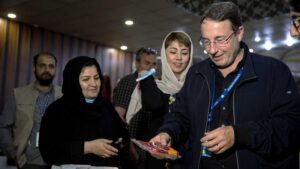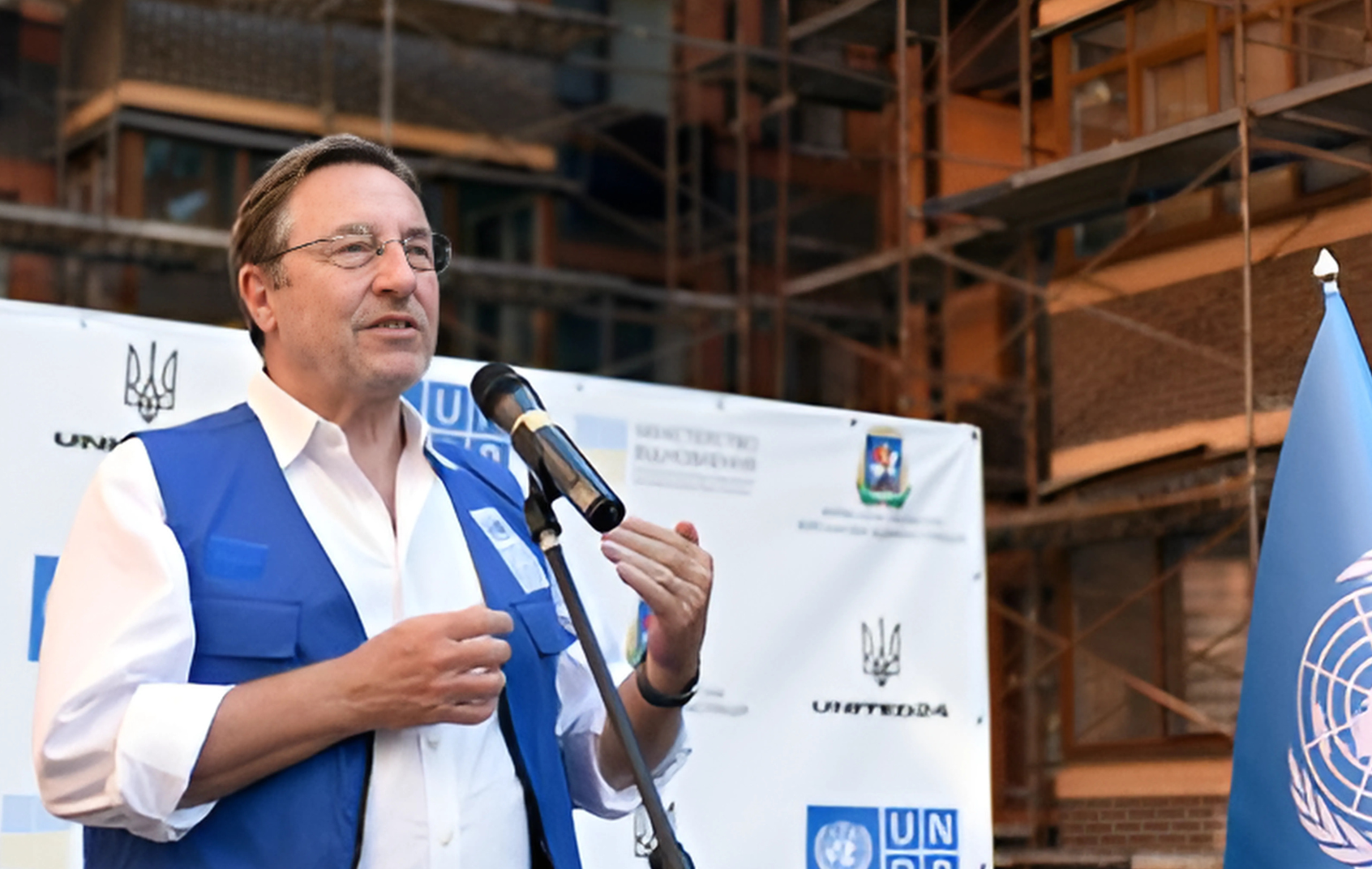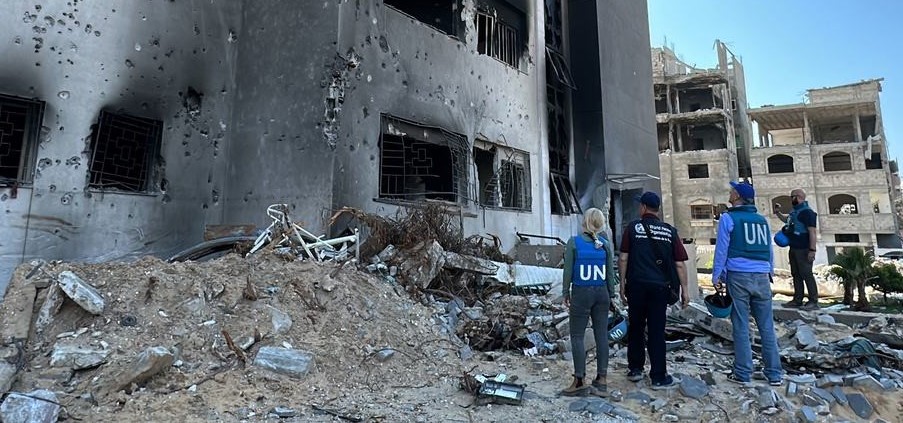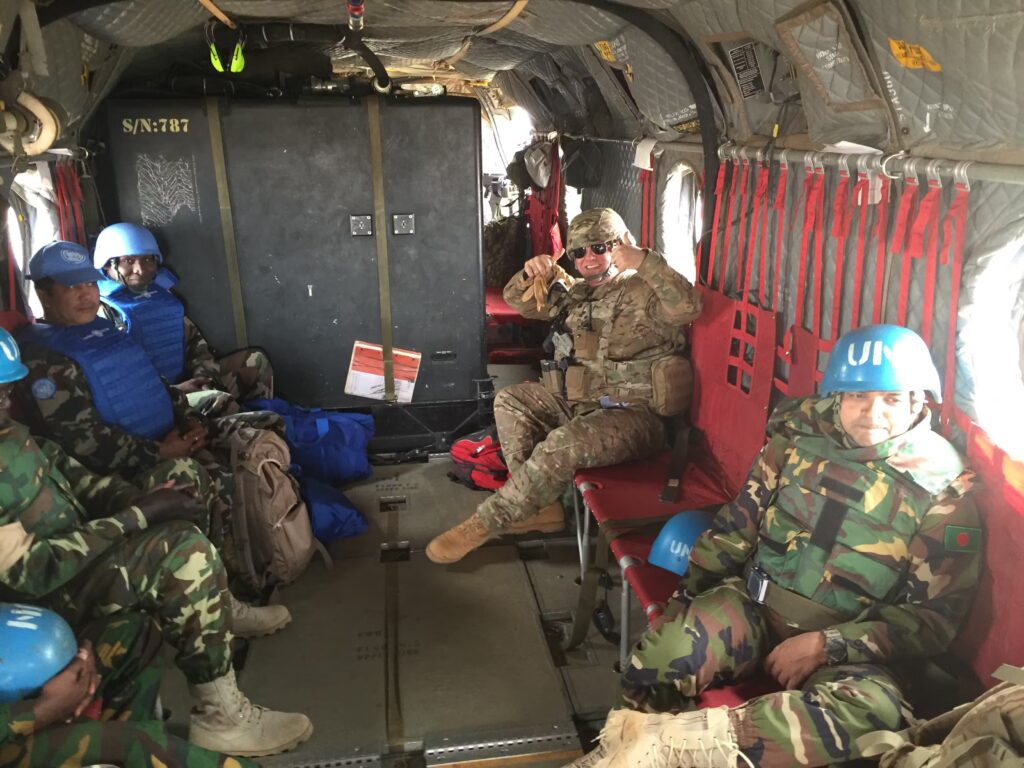If you had sixty seconds in an elevator with Achim Steiner, head of the UN Development Programme (UNDP), he’d tell you a story about 1945.
“After the Second World War, you might wonder,” Steiner says, “why an American president would turn to taxpayers and say, ‘We’re going to put a Marshall Plan together and invest in the reconstruction of Europe – including Germany.’”
President Truman wasn’t asking Americans for charity. He was making a strategic investment in global security – and U.S. prosperity.
Today, Steiner argues, U.S. support for UNDP is no different.

“Working together, collaborating with one another, is a way of investing in the development of someone else – but ultimately with a lot of returns,” Steiner remarks. Those returns include stability, economic growth and national security.
UNDP isn’t about handouts. It’s about helping nations recover, rebuild and thrive – before their failure threatens regional and global stability.
Look no further than Iraq.
“Within 24 hours of liberation from ISIS, UNDP was deploying into cities,” Steiner recalls. “In just six months, we helped 4.5 million internally displaced people return home, rebuild schools, revive economies and reweave the social fabric… We turned a major drain on resources into a success story of recovery,” he says.
That’s not just humanitarian success. That’s a frontline investment in American security interests.
“Within 24 hours of liberation from ISIS, UNDP was deploying into cities… [helping] 4.5 million internally displaced people return home, rebuild schools, revive economies and reweave the social fabric.”
Development or Defense? (Hint: It’s a trick question.)
Today, Steiner warns, the world is making a dangerous, costly mistake: believing military spending alone can buy security.
“Last year, $2.4 trillion was spent on defense,” he says. “Barely $200 billion on development. The math doesn’t add up.”
Instability doesn’t start with armies. It starts when governments collapse, when economies fail and when people lose hope.
“The drivers of conflict and insecurity are not so much rooted in the armies… but in the dysfunctionality of a society,” Steiner argues. “And that is what development can address.”
Translation: underfund development and you don’t save money – you sow future crises.
“The drivers of conflict and insecurity are not so much rooted in the armies… but in the dysfunctionality of a society. That is what development can address.”
UNDP, which manages 3,500-4,000 projects in 170 countries at any given time, has already been forced to reduce rebuilding and governance initiatives in fragile states due to cutbacks from the U.S. and other donor countries. That’s hitting HIV/AIDS treatment programs through partnerships like the Global Fund, as well.
“With the cutbacks that are coming right now, we’re cutting people off from life-supporting and life-saving programs,” Steiner says.
The cost of walking away is measured not just in lives, but in regional instability, migration crises and global economic shocks.
Development Works – If We Let It
It’s easy to despair at today’s headlines, but Steiner is clear: development has delivered measurable progress.
“In the last 10, 20, 30, 40 years, we’ve had extraordinary breakthroughs,” he stresses. “More people going to school than ever before. Diseases being eradicated. Millions lifted out of poverty.”
The problem isn’t that development doesn’t work. It’s that political will has stalled and development has been “weaponized” in domestic debates. “We’ve lost the ability to look beyond our own deep divisions,” Steiner remarks.
“In the last 10, 20, 30, 40 years, we’ve had extraordinary breakthroughs. More people going to school than ever before. Diseases being eradicated. Millions lifted out of poverty.”
The UN: Still Fit for Purpose?
Steiner doesn’t sugarcoat the challenges facing the UN. The Security Council gets gridlocked. Multilateralism can be messy. But every day, UNDP and other UN agencies still deliver results – often in places the U.S. cannot or will not go.
“Many don’t realize that this evening, over a hundred million people will have a meal because the international community comes together and has a humanitarian system that the UN is central to,” Steiner says.
“Many don’t realize that this evening, over a hundred million people will have a meal because the international community comes together and has a humanitarian system that the UN is central to.”
The vision that launched the UN in 1945 – that security, prosperity and human dignity are shared endeavors – remains sound.
What’s missing isn’t mission, it’s modernization. “Member states need to not spend all their time criticizing the UN they haven’t got, but agree on the UN they want and need – and then make it happen.”
The Bottom Line
Global challenges don’t stay neatly within borders. Pulling back from development doesn’t solve them; it invites them to America’s doorstep.
As Steiner puts it, “Wisdom and the ability to see things in a broader context may help us regain our footing.”
History suggests he’s right. And investing in UNDP today is a smart, strategic choice for America’s security tomorrow.
“Member states need to not spend all their time criticizing the UN they haven’t got, but agree on the UN they want and need – and then make it happen.”




